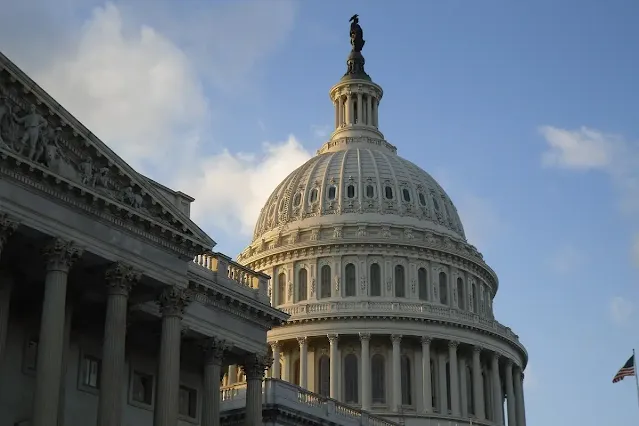Dollars and Decisions: How a $78 Billion Handshake in Congress is Rewriting the Future for Families. Discover the game-changing child tax credits and business breaks that could redefine your financial landscape. Buckle up for an economic journey that's not just about numbers but about real lives and brighter futures.
Explore the groundbreaking bipartisan tax deal reshaping the landscape for American families and businesses. Uncover the details of the $78 billion agreement, from the expanded child tax credits benefiting millions to the revival of business breaks. Delve into the potential impact on child poverty and the broader economy. Join the conversation on this historic legislative move by a divided Congress.
How do you think the proposed bipartisan tax deal, aimed at expanding the child tax credit and reviving breaks for businesses, will impact American families and the economy? Share your thoughts on the potential benefits and concerns surrounding this agreement.
Bipartisan Tax Deal Unveiled:
Boost for Families and Businesses
In a groundbreaking announcement on January 16, 2024, Congress revealed a $78 billion bipartisan tax deal designed to expand the child tax credit and reintroduce tax breaks for businesses. The agreement, reached by House Ways and Means Chair Jason Smith (R-Mo.) and Senate Finance Chair Ron Wyden (D-Ore.), signifies a crucial step towards bridging the divide in Congress.
While the deal must undergo legislative drafting and secure votes in both the Republican-led House and Democratic-led Senate, lawmakers are optimistic about a swift passage before the upcoming tax season. Jason Smith expressed confidence, stating, “American families will benefit from this bipartisan agreement that provides greater tax relief, strengthens Main Street businesses, boosts our competitiveness with China, and creates jobs.”
Key highlights of the deal include an expansion of refundable child tax credits, addressing financial challenges faced by struggling families and those with multiple children. The $1,600 refundable cap on the tax credit would be eliminated and adjusted for inflation, benefiting around 16 million children in low-income families, according to the Center on Budget and Policy Priorities.
Chairman Wyden emphasized the positive impact on low-income families, stating, “Fifteen million kids from low-income families will be better off as a result of this plan.” The Center on Budget and Policy Priorities estimates that the expansion could significantly reduce child poverty, lifting up to 400,000 children above the poverty line in the first year alone.
Democrats, aiming for a larger child tax credit, seek to rectify the lapse of an earlier version that caused child poverty rates to rise again. The proposed deal, while providing smaller benefits than the monthly payments under the American Rescue Plan, aligns with President Biden’s commitment to the expanded Child Tax Credit.
Republicans, on the other hand, are motivated to revive certain expired portions of the 2017 Trump tax cuts for businesses. The deal encompasses measures such as expensing for research and experimental costs, restoration of an earlier interest deduction, small-business expensing expansion, and bonus depreciation extension.
Despite the ambitious timeline set by Wyden to pass the deal by the beginning of the tax filing season on January 29, challenges lie ahead. Congress faces pressing issues, including averting a government shutdown and completing the funding process by March. The success of this tax deal would mark a rare accomplishment for a historically unproductive and divided Congress.
In response to the announcement, White House spokesman Michael Kikukawa expressed President Biden’s commitment to the expanded Child Tax Credit, appreciating the efforts of Chairman Wyden and Chairman Smith. The coming weeks will unveil whether the tax deal proceeds as a standalone bill or becomes part of a larger government funding measure. If successful, it could serve as a notable legislative success on a politically sensitive issue. Chairman Wyden reaffirmed his commitment, stating, “My goal remains to get this passed in time for families and businesses to benefit in this upcoming tax filing season, and I’m going to pull out all the stops to get that done.


